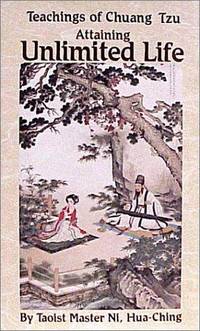
Teasing out an elegant vision of the cosmos as ever-changing yet harmonious, Hinton reveals the seed from which Chinese philosophy, poetry, and painting grew. It presents the oracular core of the I Ching as a psychological tool: the symbols interact with our minds in the same way dream images do.Ī master translator's beautiful and accessible rendering of the seminal Chinese text In a radically new translation and interpretation of the I Ching, David Hinton strips this ancient Chinese masterwork of the usual apparatus and discovers a deeply poetic and philosophical text. The Original I Ching Oracle or Book of Changes was inspired by Carl Gustav Jung's insights into the psyche and researched for more than 60 years through the Eranos Foundation of Switzerland. The traditional method required yarrow sticks but nowadays is based on tossing three coins six times. In order to “read” from the book, you must cast a hexagram.

There are 64 hexagrams, created from a collection of six lines, either broken or solid. Accumulated from over 2,500 years of diviners, sages and shamans and born out of the oral tradition, the I Ching as we know it today is a collection of texts, imagery and advice, philosophy and poetry, divided into 64 chapters. The I Ching is one of the oldest Chinese texts and the world’s oldest oracle. Often referred to as the Eranos edition, this revised and updated translation offers the most substantial advance in I Ching since Richard Wilhelm introduced the oracle to the West in the 1920s. The Original I Ching Oracle or The Book of Changes Book Review: This translation's easy-to-use format and contemporary language has made it one of the standards, delighting new users and long time practitioners as well. Brian Browne Walker has studied the Chinese language for twelve years, and has studied and practiced Taoist philosophy with a number of teachers in the United States and abroad. Brian Browne Walker's highly accessible translation of the I Ching, because it is clear and direct, allows you to make the wisdom of the ancient Chinese sages your own.
#HUA CHING NI RENEWAL CEREMONY HOW TO#
Its everlasting popularity lies in the lessons that it teaches about how to use your positive qualities in order to attain life's greatest rewards-prosperity, understanding, and peace of mind. When its wisdom is sought with sincerity and sensitivity, this Chinese oracle will help to promote success and good fortune and to impart balance and perspective to your life. For centuries, The I Ching or Book of Changes has been consulted for sage advice at life's turning points. The result is a modern classic on it's own. The bestselling translation of one of the world's great classics, now in a beautiful new edition For more than a quarter of a century, Brian Browne Walker's translation of I Ching has been not only the bestselling English rendition of the classic Taoist text, but one of the few directly translated from the original text.

The I Ching or Book of Changes Book Review: This book also serves as an introduction for students beginning the study of the Changes and presents an up-to-date survey of recent scholarship. Geoffrey Redmond and Tze-Ki Hon provide the necessary background for teachers at the university level to cover the Yijing even if they are not specialists. The associated diagrams have complex interpretative schemes. Thetext is fragmentary with many obscure allusions and conflicting interpretive traditions spanning more than two thousand years. Chinese traditional culture cannot be understood without some familiarity with the Yijing, but it is one of the most difficult of the world's ancient classics. It is now widely read in China, and scholarship on the Changes has blossomed both in China and the West, stimulated by advances in reconstructing the ancient Chinese language and by the recent discovery of previously lost versions of the text.

In China, the Yijing was alternately condemned and praised during the Mao era - though the Great Helmsman was rumored to consult the Changes himself. Beginning in the 1960s, as a result of the renewed interest in Asian philosophy and the availability of a readable English translation, the I Ching (Pinyin Yijing) became a countercultural classic and attracted scholarly interest as well. Teaching the I Ching (Book of Changes) is a comprehensive and authoritative source for understanding the 3,000-year-old Book of Changes, arguably the most influential Chinese classical text. Teaching the I Ching Book of Changes Book Review:


 0 kommentar(er)
0 kommentar(er)
